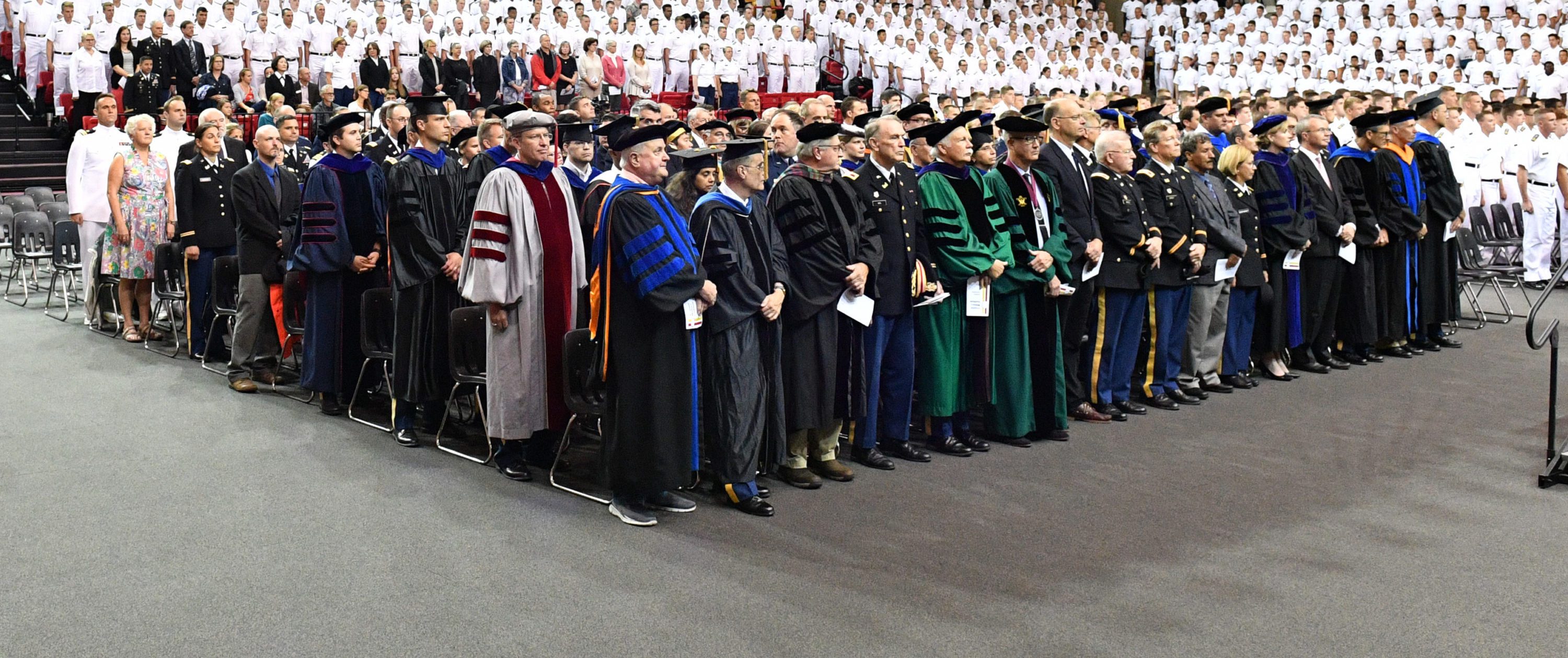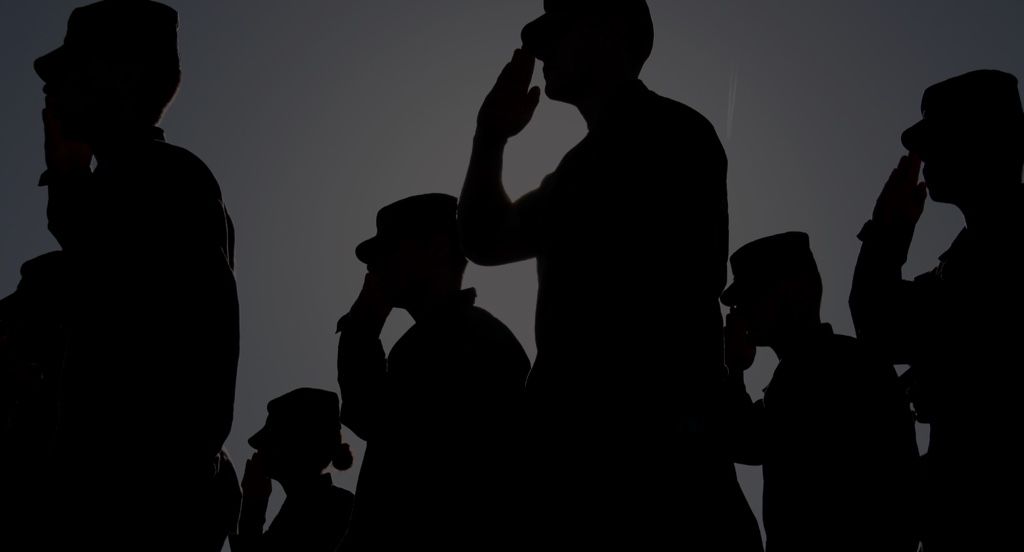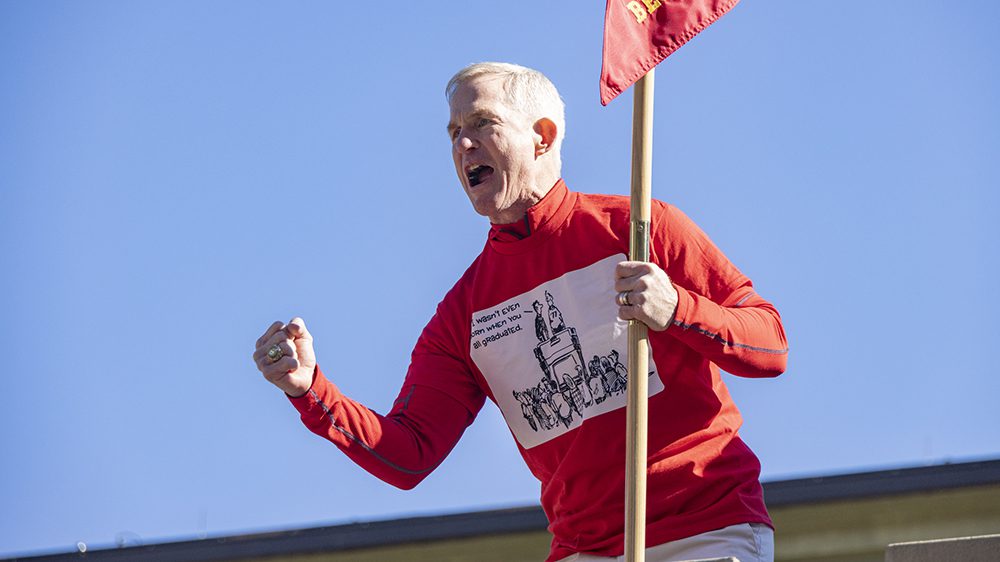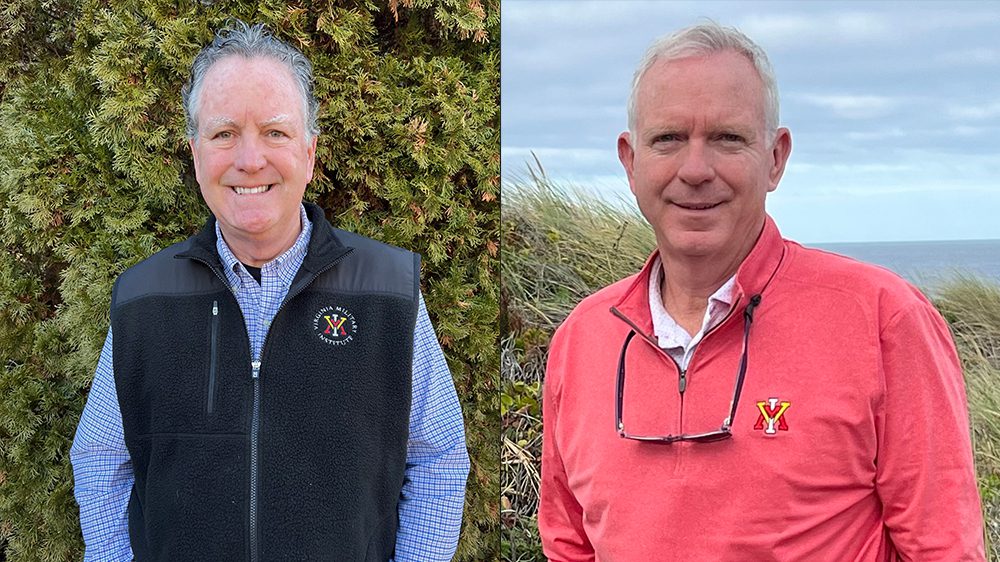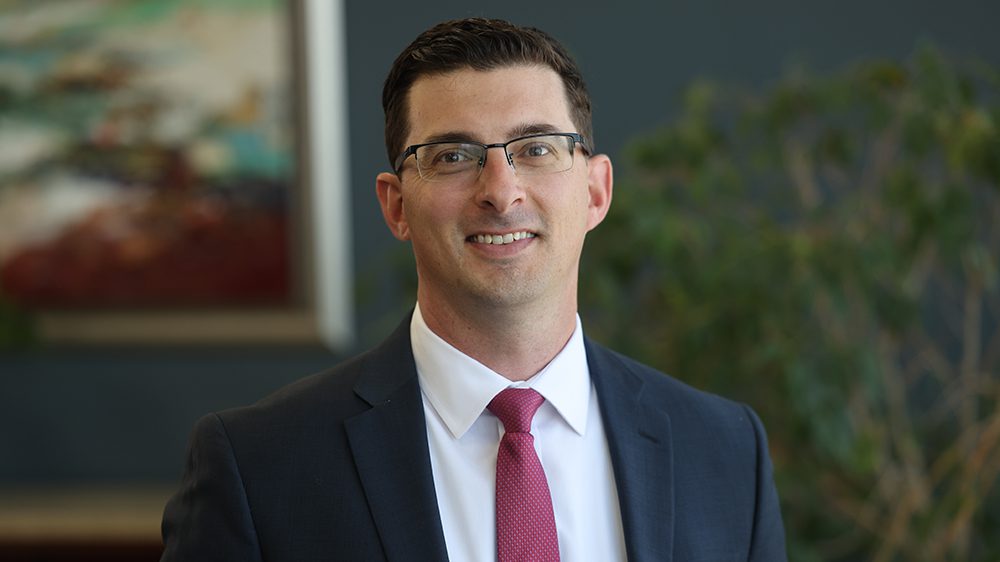The Jackson-Hope Fund has been promoting academic excellence at VMI for almost two decades by supporting faculty development and cadet undergraduate research, expanding the number of faculty positions, and fostering innovation throughout the academic program. Thanks to donors who have supported the fund with more than $50 million in donations, something that began as an idea has blossomed into a game-changer for VMI’s entire academic program.
The late 1990s were a busy time at the Institute. It was undergoing the early days of coeducation and dealing with the many associated issues, as well as beginning to examine needed changes to the Physical Plant. In preparation for a major fundraising campaign, the Institute was prompted to perform a thorough examination of its needs as a way of setting the campaign’s goals. Pre-eminent among these needs was strengthening the Institute’s academic program. As Warren J. Bryan ’71, VMI Foundation chief operating officer who was involved in supporting the campaign, recalled, “The general attitude was that the Institute had a good, solid academic program that had served it well. If we wanted VMI’s graduates to have the same impact and reputation in the future as they had had in the past, however, good was no longer good enough when it came to academics.”
The campaign cabinet – led by George G. Phillips Jr. ’60 and Josiah Bunting III ’63, then-superintendent – was of like mind on that matter. Phillips already had given the matter some thought. “I was especially keen on the idea of using the campaign to foster excellence throughout the academic program.”
Phillips consulted with people associated with development at other Virginia institutions, including the University of Virginia, the College of William & Mary and Virginia Tech. He also discussed the matter with alumni, Institute leadership and Gordon K. Davies, who served as the director of the State Council on Higher Education in Virginia for two decades.
“What I learned from them is that one reason people give a lot of money to something is that they believe in a cause,” remembers Phillips. “Well, seeing as most alumni cannot think of many better causes than VMI, we had a big head start in that regard. But I also learned that a trend was emerging – and has since accelerated – among donors. They were no longer content to simply write a check and step back. They wanted to be involved.”
For Phillips then, the question was how to apply philanthropy in such a way that it addressed critical needs within the Institute’s academic enterprise and allowed for the involvement of the donors who were making it possible. The solution was to establish a fund that would combine the best of a donor-advised fund and a venture capital fund with an element of supervision that would allow major donors or their representatives to direct its use and ensure that the funds were being used for their intended purposes. And, so, the Jackson-Hope Fund was born.
“We chose the name based on the Jackson-Hope Medal, which is the award that two graduating cadets receive every year in recognition of their status as the first- and second-highest ranking cadets academically,” said Phillips. “But there’s more to it than that. The physical medal bears its name and two more words: ‘For Excellence.’ And that – excellence throughout the academic program – is what this fund is meant to do. How it does it often varies, but that goal – achieving and maintaining excellence – has never changed.”
To achieve excellence, the fund would support new academic initiatives that would become staples of the academic program. With initial support coming from the Jackson-Hope board, the fund began its work in 2001 with the seven-member board of overseers steering the use of the funds and monitoring performance.
In June 2001, Brig. Gen. Charles F. Brower became the dean of the faculty, a post he held for seven years. Seeing the potential of the Jackson-Hope Fund, Brower sought to link the fund with the improvements outlined in the Institute’s strategic plan for academics. “In five years’ time,” said Phillips, “the initiatives that we funded had fostered dramatic improvements throughout the academic program.”
Since then, the fund’s support of the academic program has increased, and its beneficial effects have increased, as well. One of the most enduring initiatives is the Center for Undergraduate Research where cadets conduct meaningful research in various fields – research that often concludes in publication in academic journals. Faculty-mentored research is a key component to help cadets develop their critical thinking skills. The Jackson-Hope Fund also provides a majority of the money that underwrites faculty development.
During his time as dean, Brower asked the board of overseers to consider using the fund to provide support for new faculty positions. Phillips remembers Brower telling him that expanding the faculty in some departments would make them more effective. After some discussion, the board agreed to the request. The support from the Jackson-Hope Fund allowed VMI to hire faculty members when other institutions were dropping positions. “This was a turning point for VMI academics,” Phillips emphasized. “Imagine, when other schools were having to cut faculty positions, VMI was able to place well-positioned faculty where necessary to underpin the strength of significant departments. This allowed us to continue to build a momentum in consistency, growth and maturity of the curriculum.”
Since 2001, more than $50 million has been raised for the fund, which has generated $21 million in support for VMI’s academic program. In the current academic year, it is providing more than $2.7 million in support to the academic program, a figure that includes $300,000 to the Center for Leadership and Ethics, $190,000 to fund undergraduate research and more than $907,000 to support seven faculty positions, including two Jackson-Hope Distinguished Professors and a position in Arabic in the Department of Modern Languages and Cultures.
The position in the modern languages department is held by Dr. Jason Schroepfer, Ph.D., who joined the faculty this year. He enlisted in the U.S. Marine Corps in 2002. After passing the Defense Language Aptitude Battery, he trained as a military linguist studying Arabic at the Defense Language Institute. He deployed to Iraq’s Al-Anbar province and worked as an Arabic translator for the remainder of his enlistment. After leaving the Marines, Schroepfer attained a Bachelor of Arts degree in Near Eastern languages and literatures from the University of California at Berkeley. He then earned a Master of Arts degree and Doctor of Philosophy degree from the University of Texas at Austin. His research focuses on the interplay between language and society in the Arabic-speaking societies, with a particular interest in southern Egypt. “Jason – who brings a solid academic background and amazing real world experience to the classroom – is the latest in a line of professors of Arabic whose position has been supported by the Jackson-Hope Fund,” said the department’s head, Col. Don Sunnen.
The first Arabic professor to hold the Jackson-Hope funded position was Mohamed Taifi, who has taught Arabic at VMI since 2002 and whose position the fund supported for 10 years, beginning in 2003. Taifi is described by Sunnen as “an amazing asset to the department. He has led the summer study abroad program to Fez, Morocco, multiple times, most recently this past summer. Mohamed and his wife, Khadija Bentouhami, have guided the Arabic program and shaped it over the years, offering a great deal of cultural background in addition to excellent development of cadets’ language skills.” The second was Anouar El Younssi, who taught from 2016-18 and “helped further strengthen the program by organizing the nationally recognized STARTALK program at VMI for beginning Arabic in the summers of 2017 and 2018,” Sunnen explained. “Thanks to the Jackson-Hope Fund, we have been able to attract such professors to post and build a strong, nationally recognized program in Arabic.”
“Many of the innovative programs that help provide the excellent academic program to VMI cadets would not be possible without the generous annual support from the Jackson-Hope Fund,” said Brig. Gen. Robert W. Moreschi, dean of the faculty. “The fund supports teaching and research programs that include participation by faculty and cadets at national and international conferences. Attendance by our faculty and cadets at such events helps boost VMI’s reputation amongst the broader academic community and supports our national reputation. Usually, more than half of the full-time faculty attends such conferences each year, and most trips would not occur without Jackson-Hope support.”
He continued, “It also supports the work of the Miller Academic Center, which provides cadets the tools to improve academic performance such as time-management training and study skills, and the Math Education and Resource Center’s Open Math Lab. Nationwide, many matriculating college students, including our rats, suffer from ‘math anxiety’ and/or have weak math skills. The MERC is a key resource to help cadets succeed in math courses and math applications because it provides professional and cadet tutors to the Corps of Cadets in all core-curriculum and high-demand math courses.”
“Taking in all that the Jackson-Hope Fund has done and is doing, I congratulate the fund’s original donors for believing in and supporting a unique idea to assure excellence in VMI’s academic program. And I thank all those donors who have since joined them and, through their generosity, made the fund even more capable,” Moreschi concluded.
Looking back at the progress of the fund from its germination in the late 1990s to the present day, Phillips said, “The success of the Jackson-Hope Fund shows what can happen when people who want what’s best for VMI put their heads together and think creatively. It might have seemed like a crazy idea at the time, but this remarkable venture has worked way beyond our initial expectations.”
